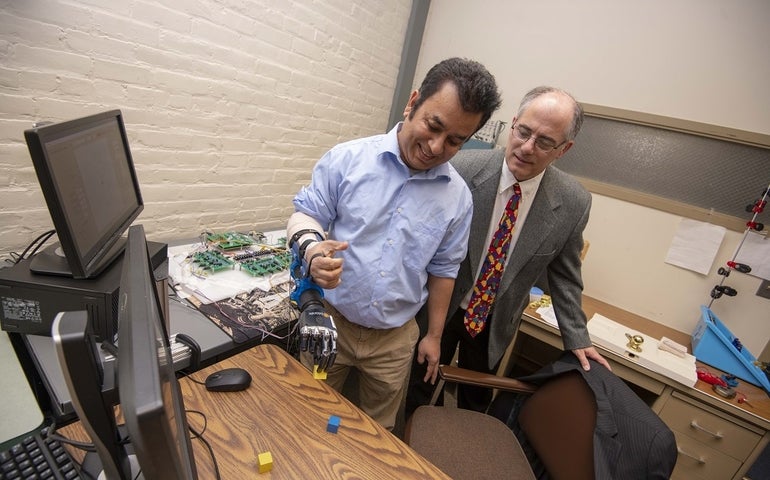Worcester Polytechnic Institute is working with a Holliston-based manufacturer of prosthetic devices to develop wireless sensors to improve the performance of upper-limb prosthetics.
Ted Clancy, professor of electrical and computer engineering at WPI, is working with Liberating Technologies and an occupational therapist to develop the technology.
Funding for the project came from a two-year, $400,000 award from the company, which was part of a grant from the U.S. Department of Defense.
Similar to how cardiologists detect the electriccardiogram activity of a patient’s heart, existing wired sensors detect the electrical activity of remnant muscle tissue in the arm. That signal is used to control the movement of a prosthetic.
However, those devices are typically attached to the body via a molded plastic socket. The prosthetic field has been moving to a new technique called osseointegration, which includes surgically implanting a metal rod into the bone to attach the device.
Under that technique, wired sensors could be hanging loose and become caught on other objects.
To address that unmet need, Clancy and the research team have proposed silver dollar-sized wireless sensors on remnant arm muscle locations.
“The idea is to create a standardized system that is more space efficient that could be readily adapted onto various products,” said Clancy.
Clancy and professor of electrical and computer engineering Zinming Huang are supervising WPI’s portion of the project, which includes developing technology using low amounts of energy so the device can be used throughout the day.
Debra Latour, an occupational therapy professor at Western New England University in Springfield and part of the research team, was born without a right hand.
“Having the opportunity to work with WPI innovators on cutting-edge technology for a unique population is exciting, and opens up possibilities,” Latour said in a statement.
Testing on amputees is expected to begin sometime next year, after which the technology will be evaluated commercially.

